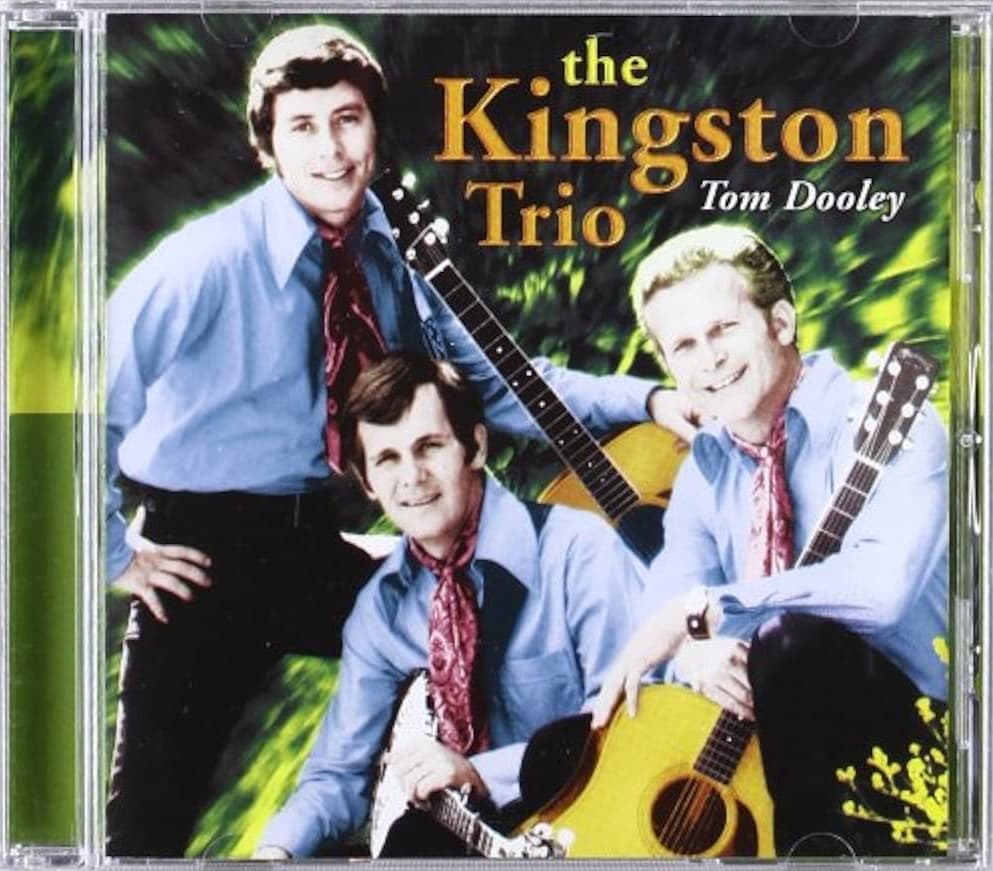
The Kingston Trio – “Tom Dooley”: A Haunting Ballad of Tragedy and Justice
The Kingston Trio’s “Tom Dooley” is a timeless folk ballad that tells the story of love, betrayal, and justice. Based on the true events surrounding the 1866 murder of Laura Foster in North Carolina, the song is a reimagining of an Appalachian folk tale. Released in 1958, “Tom Dooley” became a massive hit, reaching No. 1 on the Billboard Hot 100 and earning the group a Grammy Award for Best Country & Western Performance. Its blend of storytelling, somber melody, and harmony introduced folk music to a broader audience, helping to spark the folk revival of the late 1950s and 1960s.
The song begins with a simple, mournful guitar line that sets a somber tone, immediately drawing the listener into the tragic narrative. The instrumentation is understated, featuring acoustic guitars and bass, which allow the focus to remain on the vocals and the story. This stripped-down arrangement reflects the song’s roots as a folk ballad, emphasizing its authenticity and emotional resonance.
Lyrically, “Tom Dooley” recounts the tale of a man named Tom Dula (pronounced “Dooley”), who is convicted of murdering Laura Foster. The narrative is told from Tom’s perspective, with lines like “Hang down your head, Tom Dooley / Hang down your head and cry” expressing his remorse and resignation to his fate. The repetition of this refrain reinforces the inevitability of justice and the weight of Tom’s guilt, giving the song a haunting, reflective quality.
The verses provide a stark, straightforward recounting of events, detailing the betrayal, the crime, and Tom’s impending punishment. Lines like “This time tomorrow, reckon where I’ll be” highlight Tom’s acceptance of his fate and the emotional toll of his actions. The simplicity of the lyrics allows the story to unfold naturally, creating a sense of intimacy that makes the tragedy feel personal and immediate.
The Kingston Trio’s vocal harmonies are a defining feature of “Tom Dooley”. Their voices blend seamlessly, creating a rich, layered sound that adds depth to the song’s somber tone. The harmonies convey a sense of sorrow and inevitability, drawing the listener into the emotional heart of the story. The trio’s delivery is restrained yet poignant, capturing the gravity of the tale without overdramatizing it.
Musically, “Tom Dooley” stays true to its folk roots, with its minimalist arrangement and emphasis on storytelling. The steady rhythm of the guitars mirrors the inevitability of Tom’s march toward justice, while the sparse instrumentation underscores the bleakness of the narrative. This simplicity allows the song to maintain its emotional impact, making it a powerful example of how folk music can convey complex emotions through straightforward storytelling.
The success of “Tom Dooley” marked a turning point for The Kingston Trio and for folk music as a whole. The song’s widespread popularity introduced a new generation to traditional American folk music, paving the way for artists like Bob Dylan, Joan Baez, and Peter, Paul, and Mary. Its blend of narrative depth and musical accessibility made it a hit across genres, appealing to both folk enthusiasts and mainstream audiences.
Since its release, “Tom Dooley” has remained a cornerstone of the American folk tradition, celebrated for its haunting melody and compelling narrative. The song’s themes of love, betrayal, and justice resonate universally, ensuring its place as a timeless ballad that continues to captivate listeners. Its enduring legacy lies not only in its chart-topping success but also in its ability to connect with audiences on a deeply emotional level.
In the end, “Tom Dooley” is more than just a song—it’s a poignant tale of human frailty and the consequences of one’s actions. The Kingston Trio’s heartfelt performance, combined with the song’s rich history and haunting melody, creates a track that is both timeless and unforgettable. For fans of folk music and storytelling, “Tom Dooley” remains a powerful reminder of the genre’s ability to preserve and share the stories that define our shared cultural heritage.